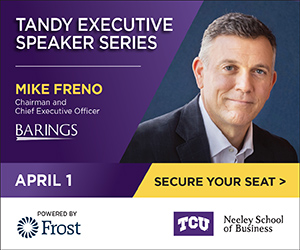“Do right and risk the consequences.” Those words were most famously said by the first Governor of Texas, Sam Houston, but most frequently said by the forty-third Governor of Texas, Mark White, who recently passed away. They were his motto, and the creed by which he lived. Our state is much the better for it. The fact that Texas weathered the recent downturn in oil and gas and continued to gain jobs, in sharp contrast to the economic devastation that accompanied a similar decline during his tenure as Governor, is in no small measure the result of his adherence to this simple, yet powerful dictum. Although his focus on education is, justifiably, what many people remember him for, we also owe him a huge debt of gratitude for his role in laying the groundwork for diversifying the state economy.
The timing of Mark’s term as Governor (1983-1987) was particularly challenging. Crude oil prices had peaked just before he took office and then had fallen significantly, and the Texas economy was suffering. In 1986, the situation became even worse, with the bottom dropping out and oil prices collapsing to less than $10 per barrel. To add to the difficulties, a real estate crisis was made worse by changes in tax laws and regulations.
Even in the midst of the ensuing economic chaos (and it was chaotic), Mark was determined to look forward, not backward. Rather than trying to cut spending and hang on until oil rebounded, he instead pushed hard for strategic investments in the future of Texas. One of his primary focus areas was education.
Mark is best remembered by many Texans for championing the “no-pass, no-play” rules which are still on the books today. The rule basically requires students to be passing all classes to participate in extracurricular activities, and was groundbreaking when it was implemented (particularly given that “Friday Night Lights” was then and remains deeply ingrained in Texas culture). In addition, he championed pay raises for teachers and basic testing for students. Mark was also a friend to higher education, working ceaselessly in its support.
He recognized that education was (and is) essential to future prosperity, and pushed through the needed tax increases to pay for it. It was a visionary stance, particularly given the extreme budget challenges Texas was facing with the dominant industry (energy) in a major slump.
Although he’s widely known for his work to improve education, Mark’s most important contribution to the state may well be in economic diversification. During one of the state’s most difficult periods, he was instrumental in opening the door to new industries, including technology. It’s no accident that the Austin area and Texas have emerged as a center for tech. Back in the 1980s, Mark, his Chief of Staff, Pike Powers, and others (including a certain young economist who didn’t know any better) worked tirelessly to bring two entities to the area, MCC and Sematech. (A few months ago, Pike was named the 2017 “Texan of the Year” by the Texas Legislative Conference; I was pleased to present the award, subbing for Governor White, whose health would not permit him to attend.)
MCC (or, more formally, the Microelectronics and Computer Technology Corporation) was a pioneering research consortium of technology companies formed in response to Japanese technological advances and a perception that the United States was falling behind. Although the more obvious choices were Silicon Valley and the Boston area, cities across the nation competed to be the location. Many entities and individuals pushed hard for a Texas location, and Austin emerged as the winner, due in large part to then-Governor White’s influence. Sematech, a consortium including semiconductor manufacturers, the US Department of Defense, and research universities came to Austin a few years later and the rest, as they say, is history. There were no formalized incentive programs in the state during this period; we had to make it up as we went along.
There has been a veritable flood of technology companies and initiatives coming to Texas since that time, and the resulting diversity is a primary reason that Texas is now an economic juggernaut that can withstand substantial shocks to our largest export sector and continue to expand. That Texas routinely wins most major economic development accolades these days owes much of its origins to Mark’s vision in a time of great strife.
Mark White wasn’t afraid to take an unpopular stand when needed, and he used Sam Houston’s admonition in his appeals to the Texas Legislature to make politically tough choices (such as a tax increase in the middle of an oil bust) that would enhance and ensure future prosperity. For Mark, the consequences were significant indeed – including a failed bid for re-election that effectively ended his career as an elected official, but not as a public servant and passionate Texan.
Over the past few days, I have looked through my frequent late-night emails with Mark. I realized that most of our time was spent railing about border adjustment taxes, efforts to undermine free trade, immigration restrictions, and other ideas that would inhibit the potential and the destiny of our great state. On a lighter note, we also concurred that, if “alternative facts truly catch on,” I was an All-Star centerfielder for the Cardinals, while he played first base. I have also thought about the situation in which we find ourselves in Texas – facing daunting challenges with respect to adequately funding public and higher education, infrastructure, and the needs of our most vulnerable citizens as we struggle with dramatic demographic shifts and the difficulty in remaining competitive in a dynamic global marketplace. We can only hope that, as words of praise and honor pour in for Mark, our leaders will think about and embrace the call to “Do right and risk the consequences.” It would be a fitting legacy for a true Texas giant.
___________________________________________________________________
Dr. M. Ray Perryman is President and Chief Executive Officer of The Perryman Group (www.perrymangroup.com). He also serves as Institute Distinguished Professor of Economic Theory and Method at the International Institute for Advanced Studies.







